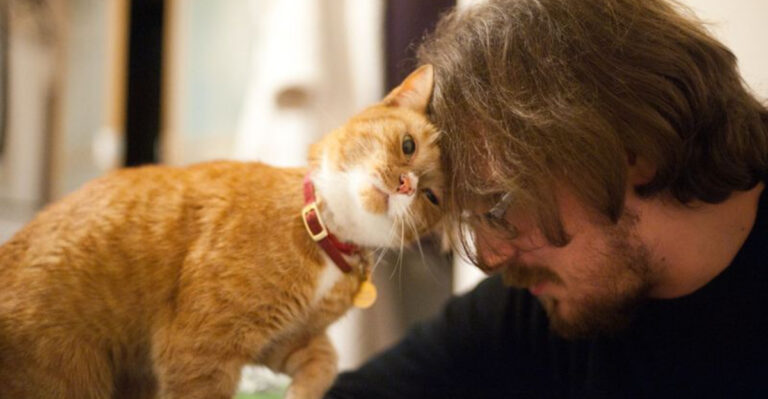16 Telltale Signs Your Cat Is Bored (And How To Fix It)
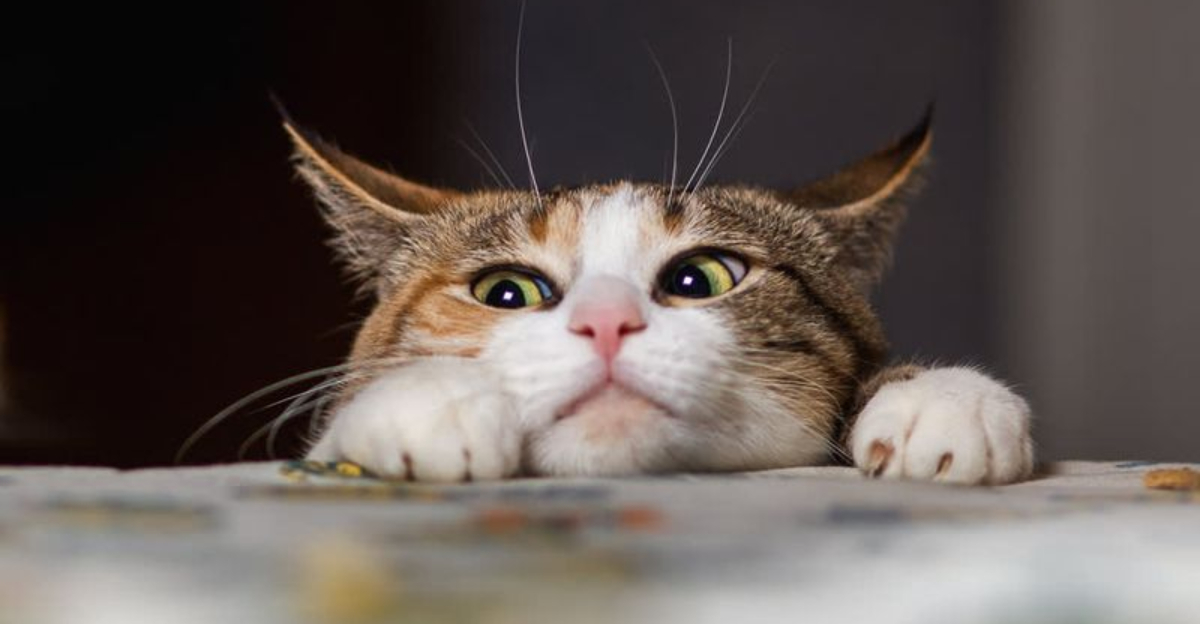
Imagine being stuck in a loop where every day feels like a slow, unending Sunday. That’s how your feline friend might feel when boredom creeps in.
Cats, though independent and mysterious, need mental stimulation and fun. Without it, they might exhibit some quirky behaviors to signal their need for a change.
1. Excessive Meowing

When your cat starts a symphony of meows, as if narrating an opera, it might be a cry for attention. This vocalization can become their way of saying, “Hey, notice me!”
Turn those meows into purrs by engaging in interactive play. A simple feather wand or a laser pointer can work wonders.
The goal is to channel their vocal energy into something fun and rewarding. And who knows, you might just discover a new game both of you enjoy!
2. Scratching Furniture
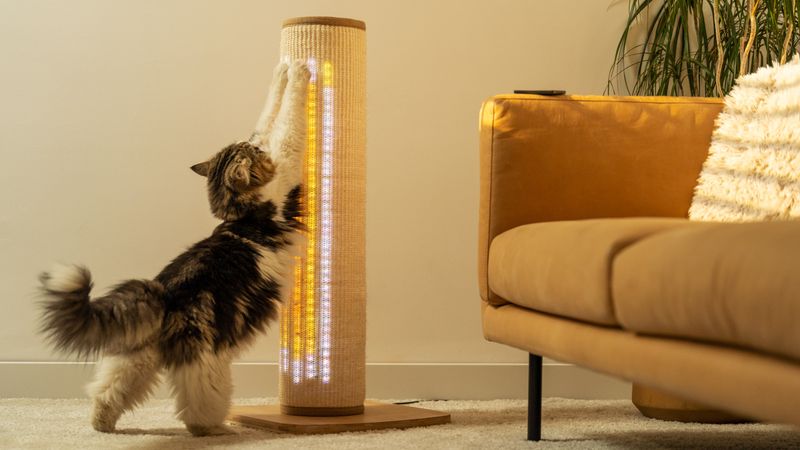
You’ve probably winced at the sight of your beloved couch turned into a scratching post. Scratching isn’t just about sharpening claws; it’s a sign of boredom.
Redirect their paws to a more suitable target, like a sturdy scratching post. Make it appealing with catnip or dangling toys.
Keep rotating toys and posts to maintain their interest. Your furniture will thank you, and your cat will have a new favorite hangout!
3. Overeating Or Begging For Food

Some cats deal with boredom by becoming mini food critics, constantly seeking snacks. This habit might lead to an expanding waistline.
Introduce food puzzles or interactive feeders to make mealtime a little hunt. It helps them burn calories while satisfying their mealtime cravings.
Switching up their diet occasionally can also pique interest. Keep them guessing, and they’ll be more engaged during meals!
4. Sleeping Too Much
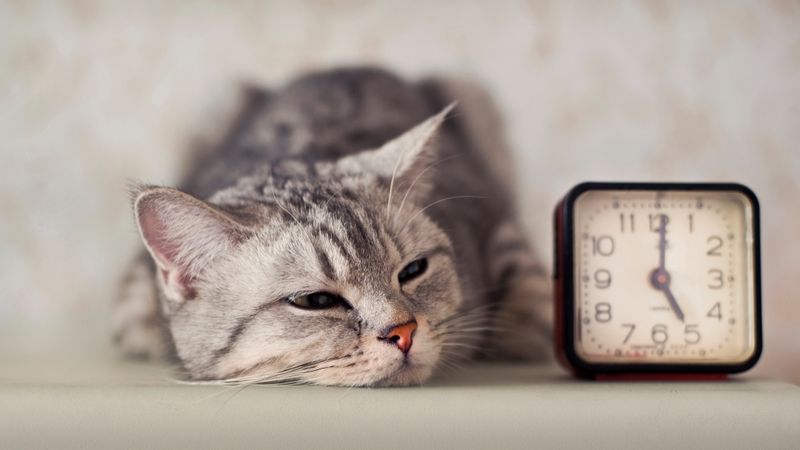
If your cat’s daily schedule involves more snoozing than a hibernating bear, it might be a boredom alarm. Cats sleep a lot, but excessive napping can signal dullness.
Introduce variety in their day by setting up bird feeders outside a window or providing new toys.
A change in environment can stimulate their curiosity, making them more alert and active. Less Z’s, more playtime!
5. Aggression Or Irritability
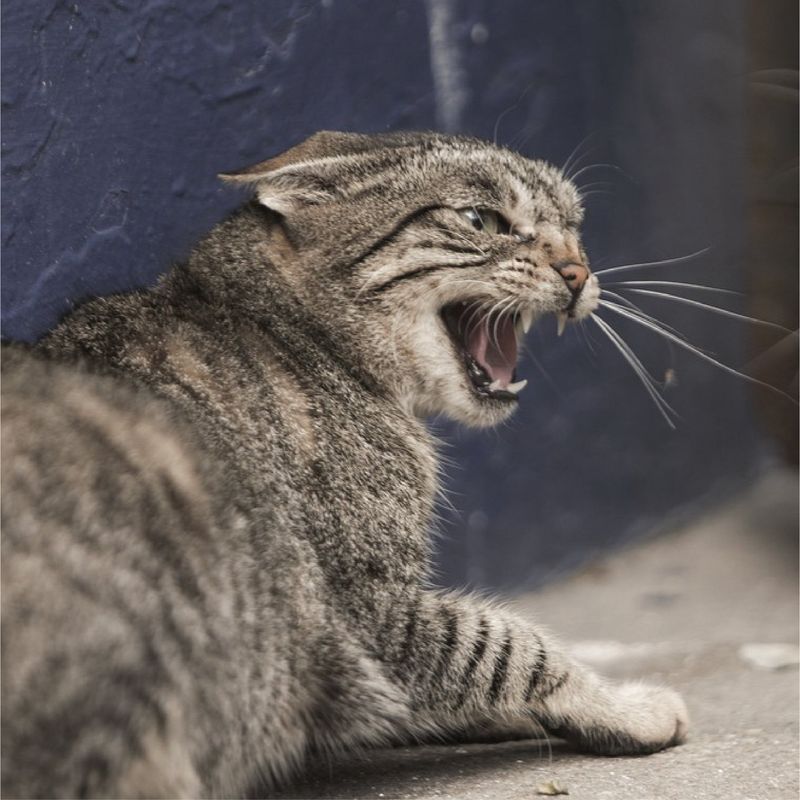
Cats can be moody, but if biting, swatting, or hissing become frequent, they might be frustrated or bored.
Interactive play can redirect their aggression. Use toys that mimic prey to channel their natural hunting instincts.
Sometimes, it’s about finding the right outlet for their energy. A little patience and creativity go a long way in calming their inner tiger.
6. Hiding Or Avoiding People
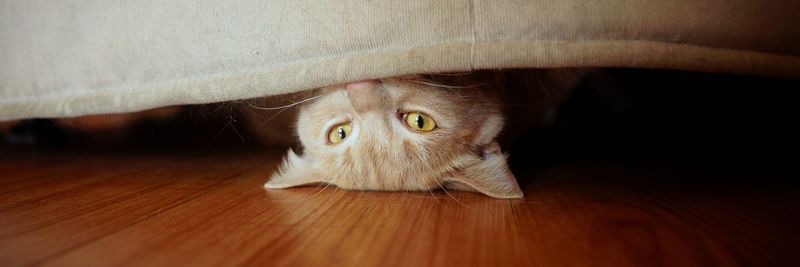
When cats play hide-and-seek without the seeking part, it may hint at boredom or stress. This behavior can be their way of coping with a lack of engagement.
Create safe, stimulating spaces around your home with cozy beds or boxes.
New hiding spots can make them feel secure yet curious, encouraging them to explore and interact more with their environment.
7. Destructive Behavior
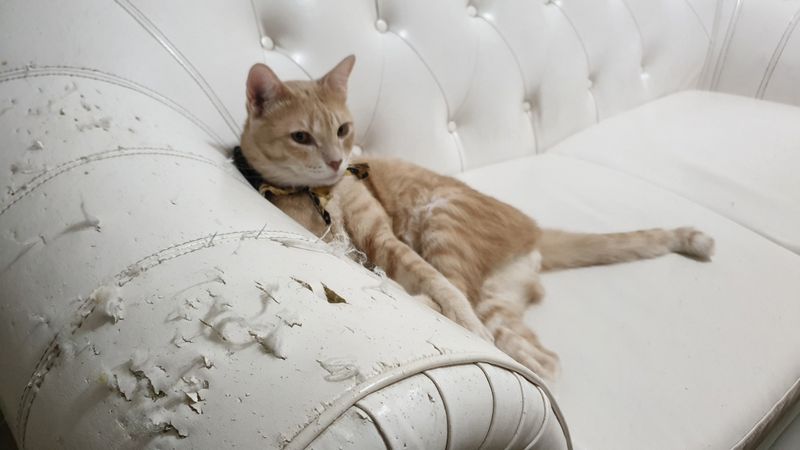
Cats sometimes become miniature chaos creators, knocking things over just because they can. This may be a sign they’re seeking excitement.
Introduce puzzle toys or interactive play sessions to redirect this energy into something constructive.
A curious cat is a happy cat, so keep their environment dynamic and full of surprises to satisfy their lively spirit.
8. Reduced Grooming
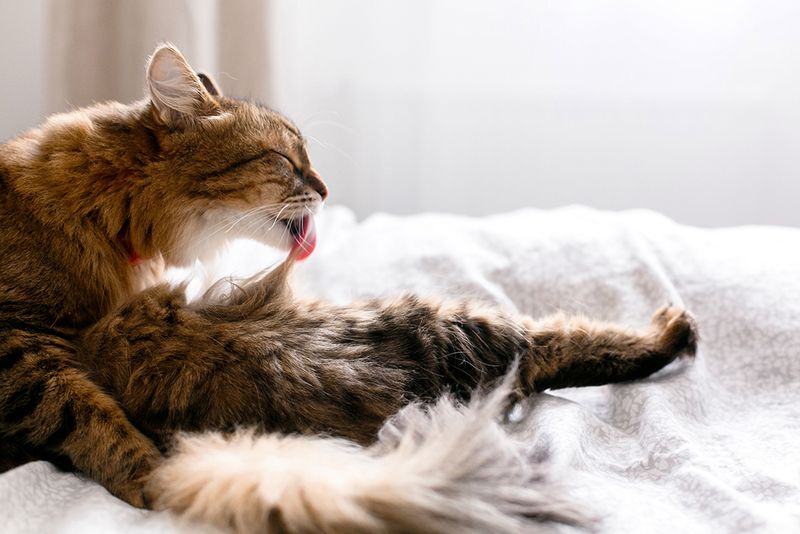
Cats are known for their impeccable grooming routines. If your cat starts looking like it’s had a rough day, it might be due to boredom.
Make grooming a bonding activity by gently brushing them or introducing grooming toys.
This not only keeps them looking their best but also reinforces your bond and provides mental stimulation. Pampering time can be quality time!
9. Yowling At Night
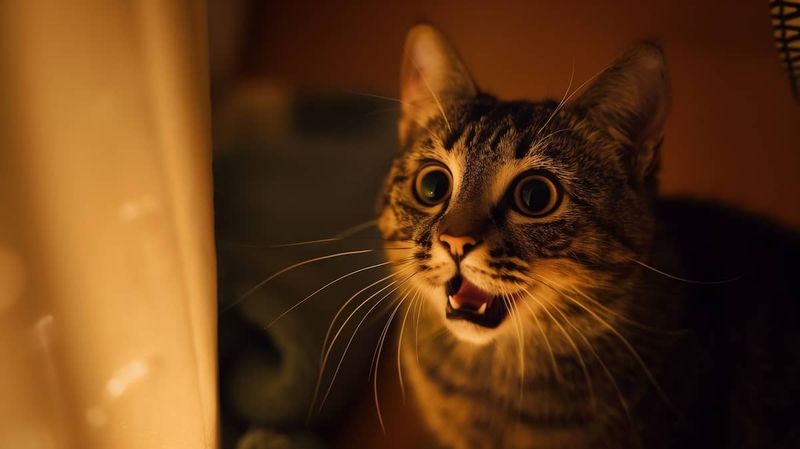
Nighttime yowls can echo through the house like a feline ghost story. Often, it’s just a bored cat seeking attention or stimulation.
Try evening play sessions to tire them out before bed, ensuring a peaceful night for both of you.
A cozy, warm bed near your sleeping area can also provide comfort and reduce those midnight serenades.
10. Excessive Licking Or Chewing
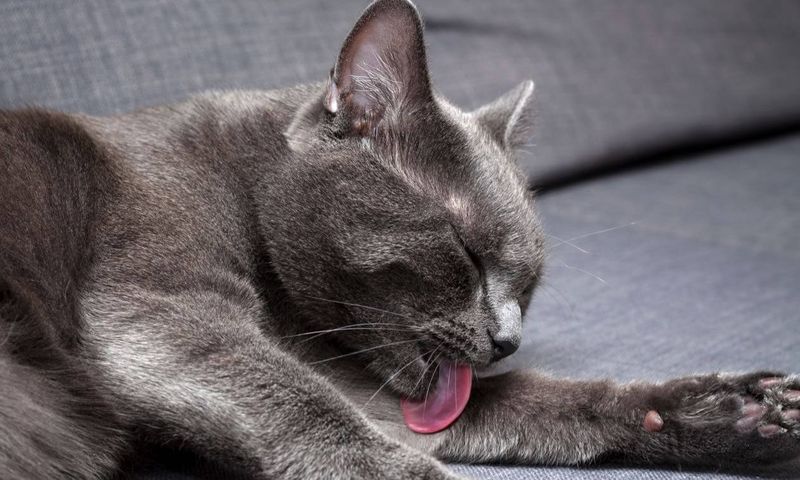
When cats channel their inner groomer too aggressively, it can lead to bald spots or sores. This might be their response to boredom or anxiety.
Introduce new toys or activities to redirect their focus. A change in routine can offer the mental stimulation they crave.
Consider consulting a vet if the behavior persists, to rule out underlying issues.
11. Following You Constantly

Feeling like a celebrity with your cat as your shadow? They might be seeking entertainment more than paparazzi moments.
Interactive toys or designated playtimes can provide the attention they crave.
Setting up a bird-watching station can also keep them engaged while you attend to your tasks. Balance is key to keep your feline fan content and independent.
12. Destroying Plants

When your plants start resembling a salad bar for your cat, it might be exploring out of sheer boredom.
Introduce cat-safe plants or grass for them to chew on, providing a healthy outlet for their curiosity.
Keeping plants out of reach or using deterrent sprays can also help protect your greenery while keeping your cat amused.
13. Ignoring Toys
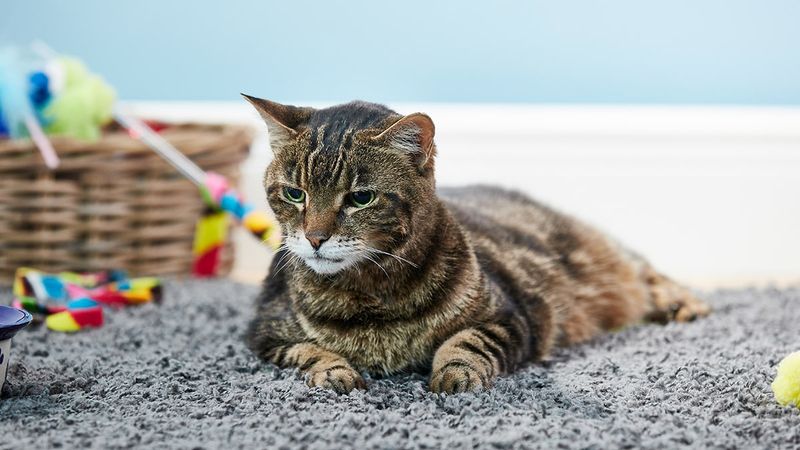
When toys become as appealing as yesterday’s news, your cat might be in need of a fun update.
Rotate toys regularly to keep them exciting and introduce new ones with different textures or sounds.
Interactive playtime with you can reignite their interest and ensure they’re mentally stimulated. After all, play is a two-way street!
14. Increased Vocalization
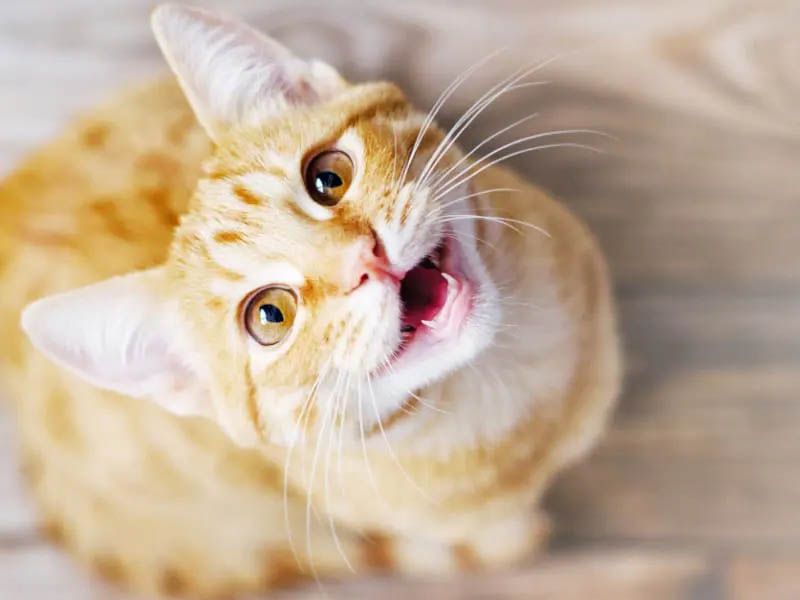
If your cat starts sounding like it’s auditioning for a musical, it could be seeking vocal interaction due to boredom.
Engage in “conversations” with them, responding to their meows with playful banter or attention.
Sometimes, simply acknowledging their chatter can make them feel more connected and content.
15. Pouncing On Invisible Prey
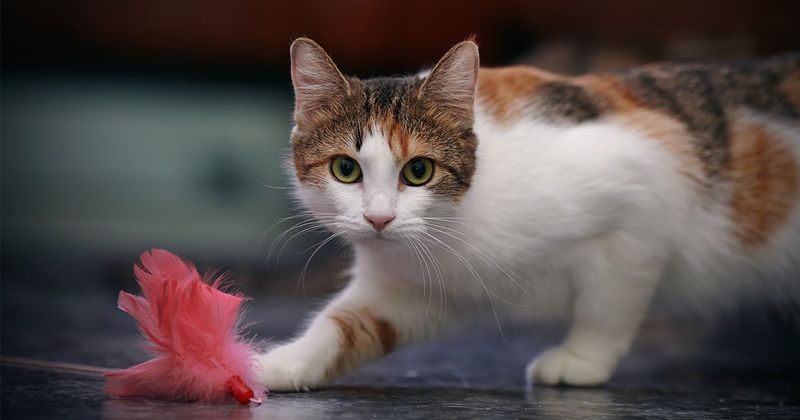
Ghost-hunting cats might be creatively fighting boredom. This imaginative play indicates a need for real prey-like toys.
Introduce feather toys or ones with unpredictable movements to mimic real prey and satisfy their hunting instincts.
This not only offers fun but also helps fulfill their natural predatory behavior, keeping them engaged and happy.
16. Frequent Escape Attempts
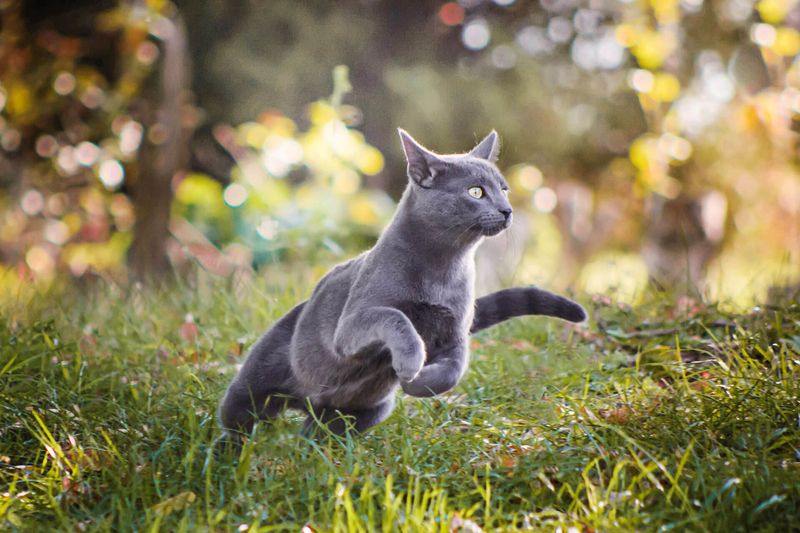
Is your cat plotting the great escape? Frequent attempts to dart outdoors might signal they’re seeking adventure beyond the sofa.
Leash training for outdoor walks or setting up an enclosed outdoor space can provide safe exploration.
This lets them enjoy the great outdoors, satisfying their wanderlust without the risks of the outside world.

